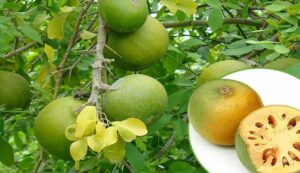Bael Vine cultivation: Spray this vinegar on crops to get rid of pests
Bael Vine cultivation: Saharanpur’s farmers are always creating new inventions. This time, farmer Surendra Kumar, who lives in the hamlet of Nunihari in the Behat assembly of Saharanpur, has made a vinegar that may be used in meals to treat stomach ailments. Additionally, this vinegar may be sprayed on crops to keep pests away. Bael vinegar has been created by farmer Surendra Kumar.

completed training
Gau Vigyan Kendra Nagpur is the training provider for farmer Surendra Kumar. He explains that he planted several bael trees and makes vinegar from the vines that grow on them. Each year, he makes 200 liters of bael vinegar. Bael vinegar is used to treat stomach issues, and Surendra Kumar also applies it to his crops. He charges ₹200 for a bottle that is 750ml. The unique aspect is that his vinegar is also offered for sale at government stores, and customers go from all around to get it from him.
This is how it should be preserved.
In an interview with the media, farmer Surendra Kumar said that bael had several advantages. Bael juice is used to treat heat and gastrointestinal issues throughout the summer. Bael is thus unavailable after one season. To keep bael fresh for a long period, people use preservatives, which has a lot of drawbacks.
But vinegar is one such item whose properties may be preserved by multiplying it by a few thousand. He adds that hybrid fruits and vegetables are becoming increasingly popular. However, we make an effort to employ native products rather than hybrids. He makes his vinegar using local bael as a result.
This is the method for making bael vinegar.
The pulp is removed from the tree once the ripe bael has been plucked. Once the pulp has been removed, dilute it with water. A little amount of local jaggery is added for fermentation. it remains closed for around three to six months. It takes six months to be fully prepared. Each year, Surendra Kumar makes 200 liters of vinegar. Even 200 liters of vinegar are insufficient to meet the huge demand for it.





